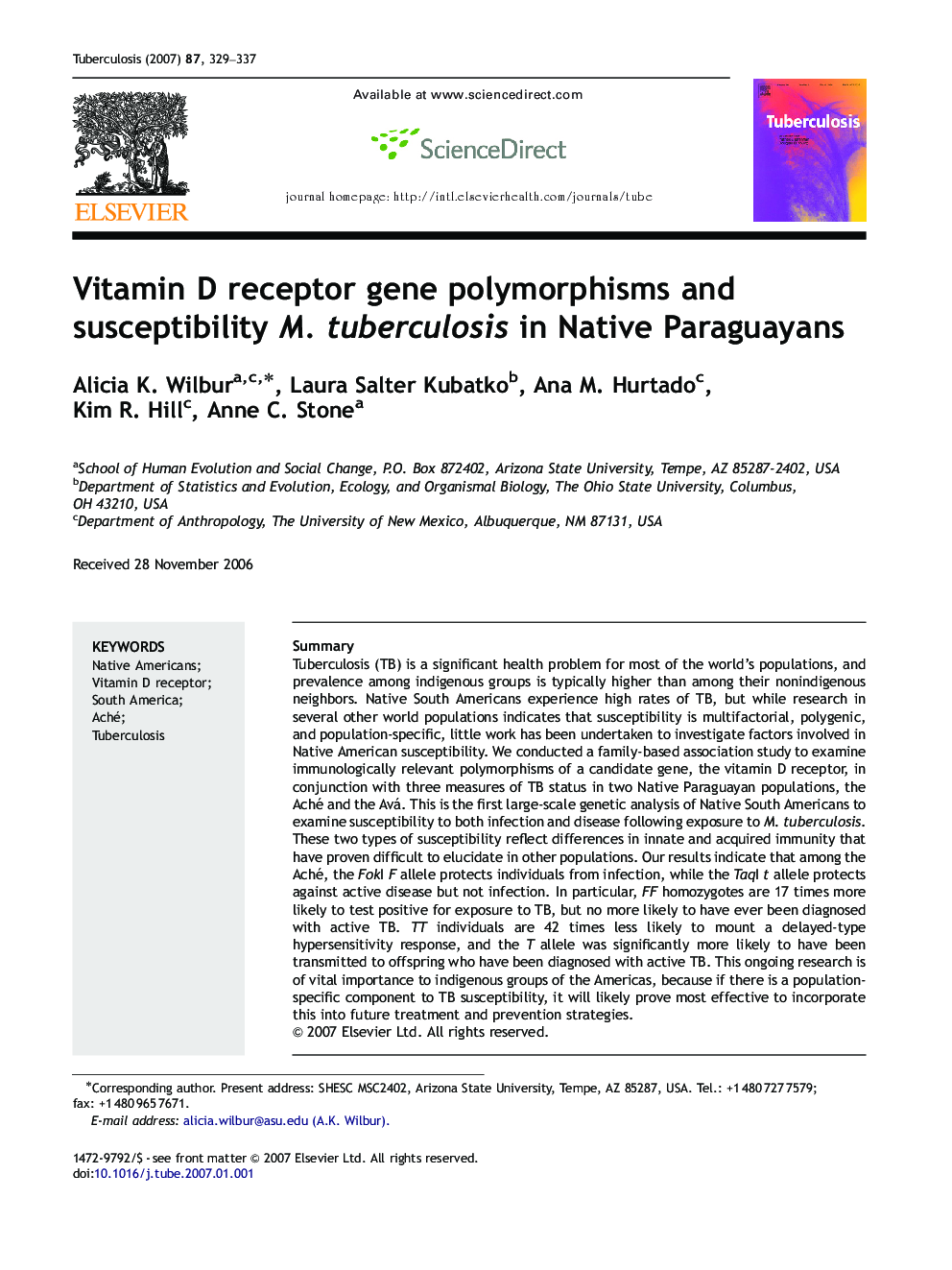| کد مقاله | کد نشریه | سال انتشار | مقاله انگلیسی | نسخه تمام متن |
|---|---|---|---|---|
| 10962310 | 1102385 | 2007 | 9 صفحه PDF | دانلود رایگان |
عنوان انگلیسی مقاله ISI
Vitamin D receptor gene polymorphisms and susceptibility M. tuberculosis in Native Paraguayans
دانلود مقاله + سفارش ترجمه
دانلود مقاله ISI انگلیسی
رایگان برای ایرانیان
کلمات کلیدی
موضوعات مرتبط
علوم زیستی و بیوفناوری
ایمنی شناسی و میکروب شناسی
میکروبیولوژی و بیوتکنولوژی کاربردی
پیش نمایش صفحه اول مقاله

چکیده انگلیسی
Tuberculosis (TB) is a significant health problem for most of the world's populations, and prevalence among indigenous groups is typically higher than among their nonindigenous neighbors. Native South Americans experience high rates of TB, but while research in several other world populations indicates that susceptibility is multifactorial, polygenic, and population-specific, little work has been undertaken to investigate factors involved in Native American susceptibility. We conducted a family-based association study to examine immunologically relevant polymorphisms of a candidate gene, the vitamin D receptor, in conjunction with three measures of TB status in two Native Paraguayan populations, the Aché and the Avá. This is the first large-scale genetic analysis of Native South Americans to examine susceptibility to both infection and disease following exposure to M. tuberculosis. These two types of susceptibility reflect differences in innate and acquired immunity that have proven difficult to elucidate in other populations. Our results indicate that among the Aché, the FokI F allele protects individuals from infection, while the TaqI t allele protects against active disease but not infection. In particular, FF homozygotes are 17 times more likely to test positive for exposure to TB, but no more likely to have ever been diagnosed with active TB. TT individuals are 42 times less likely to mount a delayed-type hypersensitivity response, and the T allele was significantly more likely to have been transmitted to offspring who have been diagnosed with active TB. This ongoing research is of vital importance to indigenous groups of the Americas, because if there is a population-specific component to TB susceptibility, it will likely prove most effective to incorporate this into future treatment and prevention strategies.
ناشر
Database: Elsevier - ScienceDirect (ساینس دایرکت)
Journal: Tuberculosis - Volume 87, Issue 4, July 2007, Pages 329-337
Journal: Tuberculosis - Volume 87, Issue 4, July 2007, Pages 329-337
نویسندگان
Alicia K. Wilbur, Laura Salter Kubatko, Ana M. Hurtado, Kim R. Hill, Anne C. Stone,